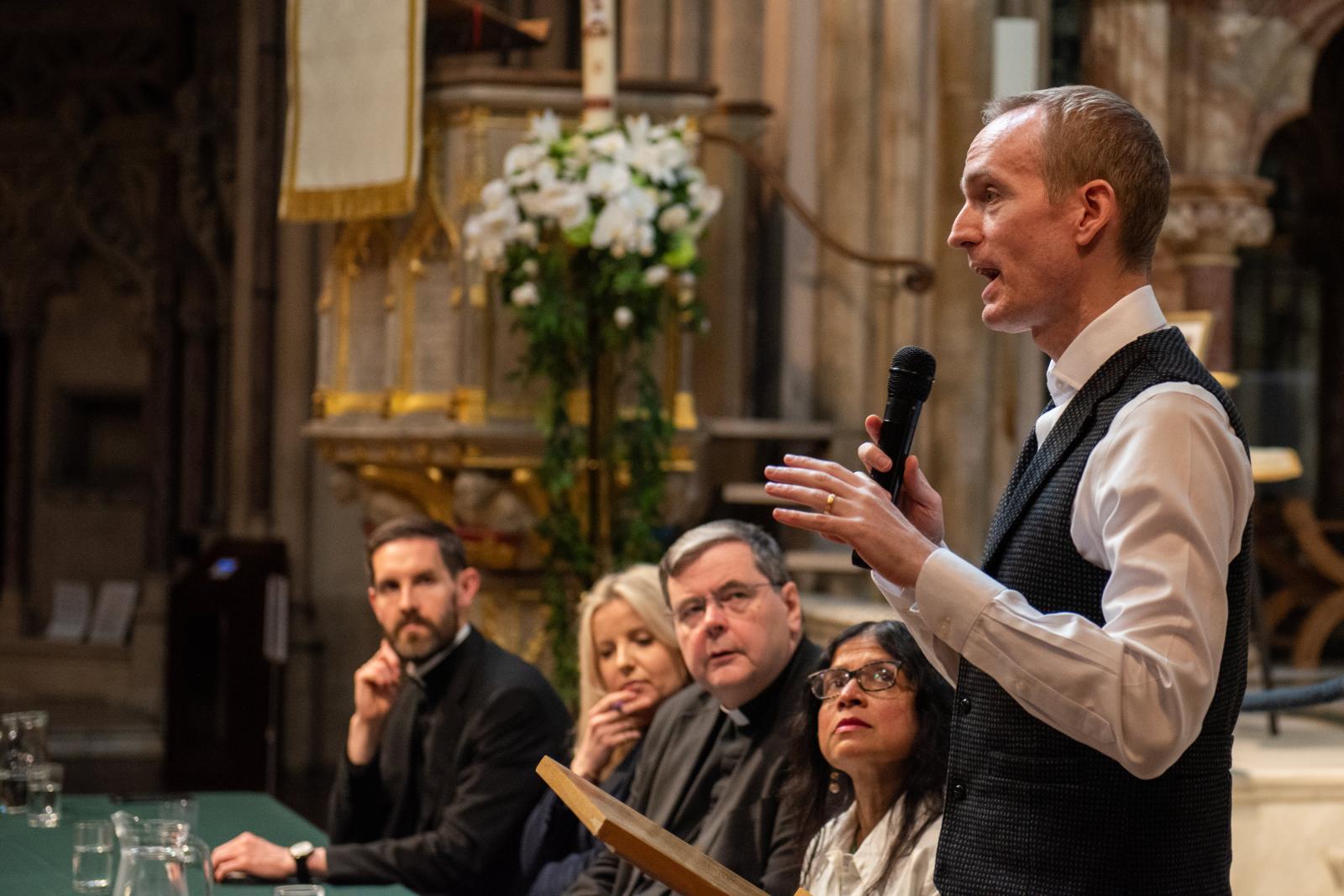Barely days into his Papacy, Pope Leo XIV remarked on how the development of AI inspired the choice of his papal name.
Speaking to the College of Cardinals, the Holy Father said:
‘I chose to take the name Leo XIV. There are different reasons for this, but mainly because Pope Leo XIII in his historic encyclical “Rerum Novarum” addressed the social question in the context of the first great industrial revolution.'
‘In our own day, the Church offers to everyone the treasury of her social teaching in response to another industrial revolution and to developments in the field of artificial intelligence that pose new challenges for the defence of human dignity, justice, and labour.’
It was therefore very timely that the Catholic Union, in collaboration with Farm Street Church, hosted a talk entitled ‘AI, Faith and Ethics at a Crossroads: Discerning the Way Forward’ which explored the moral and spiritual challenges facing us in this time of technological transformation.
In her opening remarks, Dr Karen Singarayer, Vice-Chair of the Catholic Union of Great Britain, highlighted the opportunities and risks of the development of AI:
‘The artificial intelligence revolution holds both promise and peril. The AI revolution seems to be impacting not only manual labourers but also professionals. The written word, once the exclusive realm of the human mind, is now increasingly the domain of machines. Video and audio too are more and more frequently AI-generated. Professions that long commanded social respect as learned or creative vocations now seem vulnerable in the face of the machine.’
‘These developments prompt us to ask difficult questions — what does it mean to be truly present to another human being? How are relationships, education, healthcare, and even evangelisation being reshaped by the advent of AI? These are the questions we’ll explore this evening.’
Jen Copestake, Correspondent CGTN Europe, said:
‘AI is no longer a matter of speculation; it is deeply embedded in all of our lives. We stand at a crossroads—not just technological, but moral and philosophical. As AI becomes more capable, present and even humanlike, the question is not just what it can do, but what should we do.’
Speaking on AI's use in Evangelisation, Matthew Harvey Sanders, CEO of Longbeard, Creator of Magisterium AI, said:
‘What we found is that there's a lot of people out there who aren't ready to step into a church and talk to a priest or share their concerns, but they are ready to test their problem, their query out on a chatbot. And so really for us this isn't a question of trying to replace the priest at all. It's just recognizing where people are at.They have two choices: a secular large language model or an alternative where fidelity is kind of the objective function. We've seen testimonials of people who started a journey to the church or had misconceptions clarified. It's been a beautiful project.’
Fr. Michael Baggot, Professor of Theology at Pontifical University of St Thomas Aquinas, Rome, spoke about how the Church is founded upon relationship, with God and each other:
‘We are masters of communion. We are masters of relationship. We follow a God of relationship, not a solitary God, but a God who is eternal exchange of interpersonal love. If we're made in the image of that God, we are called into being by a God of communion for communion—with that God and with the other persons made in the image of that God. We were made for interpersonal communion.’
Listen to the entire talk here.




